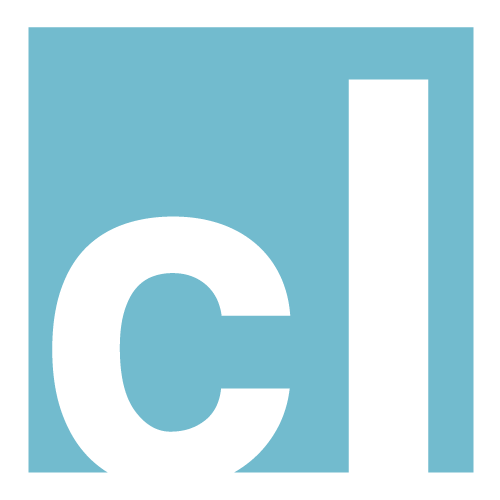Exciting Announcement: Publication in the Journal of Systemics, Cybernetics and Informatics
I am thrilled to share our latest publication in the esteemed Journal of Systemics, Cybernetics, and Informatics. The paper «Trans-Disciplinary Communication in Collaborative Co-Design for Knowledge Sharing» is a collaborative effort with distinguished colleague Dr. James Lipuma. It’s an honor to be a part of this paper (Lipuma & León, 2024).
Paper Abstract:
As part of the federally mandated accreditation process, higher education institutions must periodically assess the effectiveness of general education programs to ensure that students acquire and demonstrate certain essential skills, as defined by their regional accrediting bodies. Facilitating the design and implementation of this assessment process for continuous improvement requires institution-wide engagement and collaboration with faculty from the numerous disciplines that contribute to the general education program’s curriculum. Trans-Disciplinary Communication (TDC) skills are essential for conducting such a complex initiative.
This paper will describe how TDC assisted in the success of this work. The lead author is the Assistant Director for Assessment and Accreditation at New Jersey Institute of Technology (NJIT), an R1 polytechnic university in the U.S.A. In this role, he was required to lead faculty and other stakeholders in redesigning and implementing a new process for assessing NJIT’s General Education Requirements (GER) program outcomes. The GER assessment initiative has fostered engagement with faculty members across various colleges and departments, all contributing to the General Education Requirement (GER) program’s curriculum. This engagement stems mainly from ongoing collaborations with three key groups: The Faculty Senate’s GER Subcommittee, a dedicated GER committee located within the College of Science and Liberal Arts (CSLA) at NJIT, and a diverse group of assessment-focused faculty, staff, and administrators spread across the institution.
This case study has identified specific challenges that can be resolved through the implementation of effective TDC. An example of these challenges was effectively communicating the accreditation requirements, best practices, and the importance of assessing the general education curriculum to a diverse faculty. A literature review of relevant research into the challenges of working with diverse faculty on assessment issues as well as TDC tools and best practices relevant to these challenges, is included. The paper describes the processes implemented and how TDC facilitated progress as part of divulging and translating concepts from assessment across disciplinary boundaries. Finally, the authors present a clear set of conclusions that provide recommendations for others who might engage in this type of collaborative co-design utilizing TDC.
Presented at WMSCI 2023:
Second Meeting of the International Association FOR Trans-Disciplinary Communication (AFTC) (Lipuma & León, 2023).
Read Our Paper
You can access our paper in the Journal of Systemics, Cybernetics and Informatics, Vol. 22, No. 1, pp. 193-210, 20204. Read here
Acknowledgments
Special thanks to Hanyun ‘Sandy’ Chang (Taiwan, Electrical and Computer Engineering), Katie Lipuma (USA, French Fries), and Cynthia Shafer (USA, Yoga and Clinical Nutrition) for their unconditional support.
Peer-Editor: Jeremy P. Reich, Assistant Director for Assessment and Accreditation, Office of Institutional Effectiveness, New Jersey Institute of Technology. NJ, USA.
Non-anonymous peer-reviewer: Dr. Bruce Bukiet, Professor of Mathematical Sciences, New Jersey Institute of Technology. NJ, USA.
Beta-Readers: Marcos Cabobianco Jefe de trabajos prácticos (Historia).Universidad de Buenos Aires Argentina. Argentina.
Disclosure of Support Statement of Contributions (DSSC) No conflict of interest pertains to the research presented above. For the full DSSC see this link: https://osf.io/va95e
Copyright
© All rights reserved. Systemics, Cybernetics, and Informatics, 2024.
Sources
Lipuma, J., & León, C. (2023). Trans-Disciplinary Communication in Collaborative Co-Design for Knowledge Sharing [Abstract]. Abstracts Proceedings of The Virtual Second Meeting of The International Association FOR Trans-Disciplinary Communication, 35. /Research/Collaboration & Convergence. https://www.academia.edu/107745793/WMSCI_2023_Abstracts_Prceedings?email_work_card=title
Lipuma, J., & León, C. (2024). Trans-Disciplinary Communication in Collaborative Co-Design for Knowledge Sharing [JSCI]. Journal of Systemics, Cybernetics and Informatics, 22(1), 193–210. /Research/Collaboration & Convergence. https://doi.org/10.54808/JSCI.22.01.193
Citation
When citing this paper, use this format:
Lipuma, J., & León, C. (2024). Trans-Disciplinary Communication in Collaborative Co-Design for Knowledge Sharing. Journal of Systemics, Cybernetics and Informatics, 22(1), 193–210. https://doi.org/10.54808/JSCI.22.01.193

